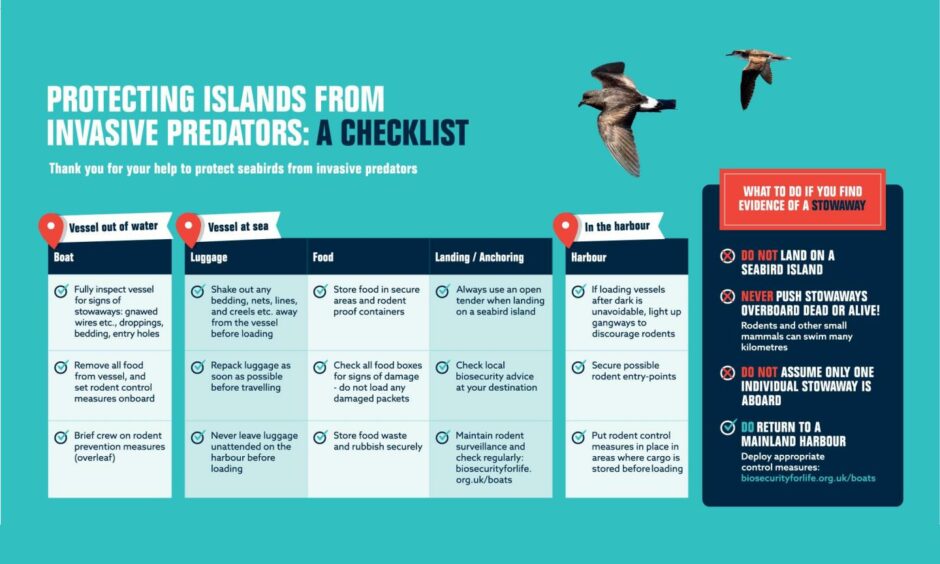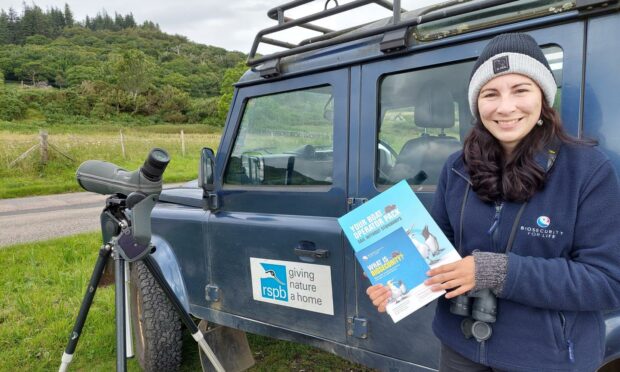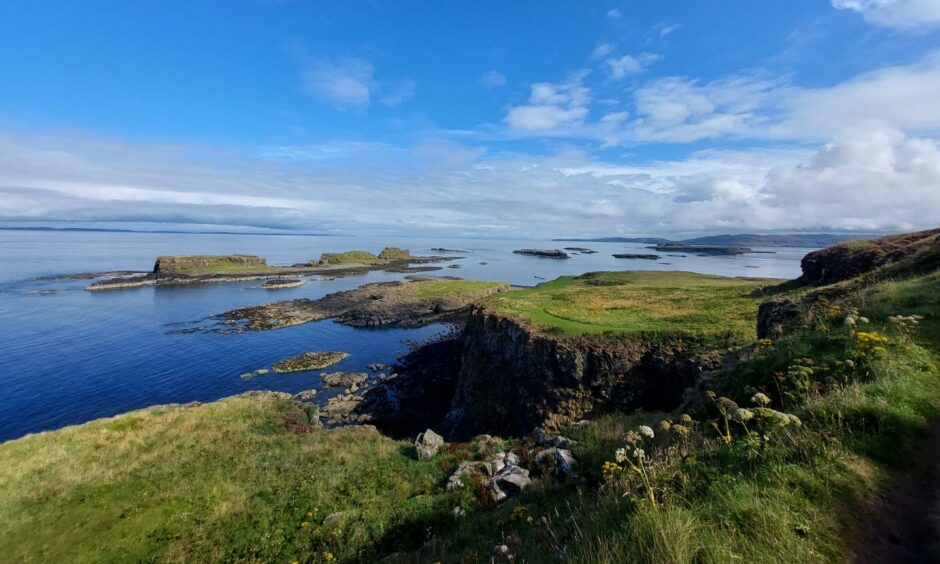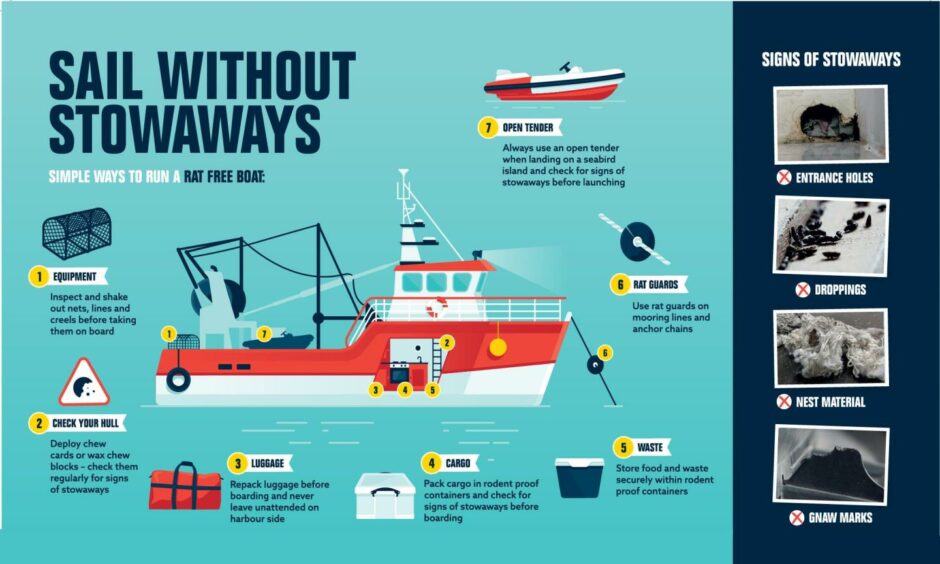Boat operators on Mull have been given tips about how to protect vulnerable seabird colonies on its outlying islands from stowaways like rats and mink.
Important colonies gather on the Treshnish Isles and Staffa, where tour boats take visitors for a closer look at the rare birds including puffins, Manx shearwater, and European storm-petrel.
A project raising awareness of the risk, named Save Our Seabirds from Invasive Island Invaders, visited Mull earlier this year.
People were advised of measures they can take to avoid accidentally transferring predators to important seabird colonies on islands.
Measures include encouraging boat owners to check their boats, cargo and baggage, and for day trippers to check their bags and keep any foodstuffs in animal proof containers.
Many of our most important seabird breeding colonies are on islands that are naturally free from land predators.
Around the world, predation of seabird eggs and young by invasive non-native predators is one of the leading causes of their decline.
Over the last few centuries, many seabird colonies in the UK have suffered from falls in population or been lost completely in this way.
This summer, the project launched biosecurity information packs for boat owners, containing advice to prevent invasive predators stowing away on vessels, and providing harmless “chew cards” that can be set up on vessels for reassurance that no rodents have boarded.
The Biosecurity for LIFE project, which was awarded £700,000 of funding from EU LIFE in 2018, is a partnership between the RSPB, the National Trust and the National Trust for Scotland.

Sarah Lawrence, biosecurity officer (west and central Scotland), said: “It has been great to meet boat operators on Mull – it’s clear that everyone’s keen to prevent mink and rats from reaching seabird colonies on the Treshnish Isles and Staffa.”
Dave Sexton, RSPB Mull officer, added: “It’s very encouraging that the boat trips are so keen to be part of this effort but we need private boat owners who land on Lunga to be involved too.
All boat owners can help
“Seabird colonies are so vulnerable and we know mink will happily stow away on boats.
“Thankfully Mull’s white-tailed eagles are also doing their bit as we find mink in nests as prey items and we know from studies in Finland that they pluck mink out of the water as they’re swimming and can help stop them dispersing to off shore islands.”
“All boat owners in the area can help – even if you never land on the islands: both mink and rats can swim at least two kilometres, so we’d encourage everyone to add a quick check of their vessel for signs of rodents or sleeping mink into the daily routine, and to set up rodent surveillance onboard.”


